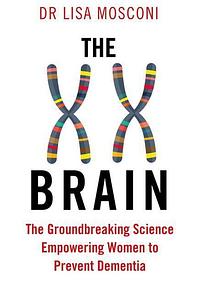You need to sign in or sign up before continuing.
Take a photo of a barcode or cover
hopeful
informative
inspiring
reflective
medium-paced
I appreciated this and will likely come back to it. Also, there was a lot of information that I considered fairly “no brainer” material and/or that I would have liked more depth on.
It took me 2 years to read this book as it was just so heavy. I found parts of it fascinating and educational, particularly to begin with, but I skim read some too because it felt like I could potentially be scared to live... Not being able to take medication, use plastic food containers or particular make up.
The first half is very informative, even if some of the information is now slightly outdated due to newer research. The second half of the book is just Goopy fear-mongering of “chemicals” and “toxins” referencing bad studies, no studies, or the EWG (the OG fear-mongerer). Even doctors are susceptible to misinformation.
informative
medium-paced
informative
inspiring
slow-paced
informative
fast-paced
informative
slow-paced
hopeful
informative
informative
Kind of scary first half, excellent common-sense second half. Eat your vegetables, get some exercise, et cetera. We know these things, but tying them explicitly to future Alzheimer's risk is a new level of motivation. Also: some good science-backed answers on the often confusing subjects of hormone therapy (does it increase cancer risk?) and supplements (is black cohosh really any good?) Mosconi emphasizes throughout that many of these questions are highly individual and answers are different for different people.
It's a good book. At the same time, I notice that the medical establishment has not yet figured out how to be inclusive of trans or nonbinary people in this kind of writing. There's one paragraph acknowledging their existence, and then the book goes right back to addressing "women" with the assumption that all women go through menopause, and all people who go through menopause are women. Just a limitation that other readers may want to be aware of.
It's a good book. At the same time, I notice that the medical establishment has not yet figured out how to be inclusive of trans or nonbinary people in this kind of writing. There's one paragraph acknowledging their existence, and then the book goes right back to addressing "women" with the assumption that all women go through menopause, and all people who go through menopause are women. Just a limitation that other readers may want to be aware of.



